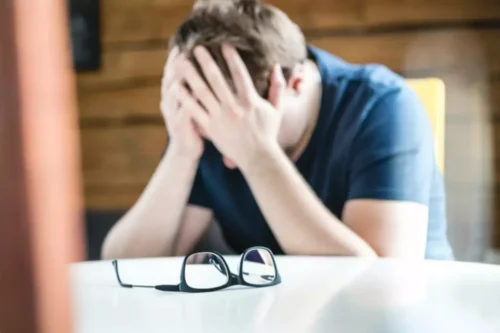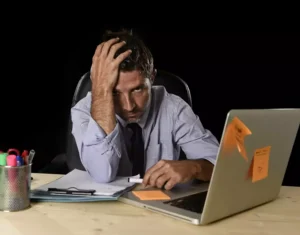We dive deep into reasons you think you can’t sleep without alcohol here and how to stop alcohol insomnia here. Sleep debt can cause daytime sleepiness the next day, but also for many days to come if you don’t catch up on sleep. For an expert’s take, we spoke to Rise Science sleep advisor and medical reviewer Dr. Chester Wu, who is double board certified in psychiatry and sleep medicine. To make matters worse, alcohol isn’t like water and other fluids. In other words, it can cause your body to dispel an extra measure of liquid.
Alcohol-induced sleep disorders
Some people may find they can’t sleep after drinking or their sleep quality suffers, and the science backs up this reality. In addition, moderate doses (2 to 4 drinks) and high doses (more than 4 drinks) of alcohol reduced overall rapid eye movement (REM) sleep during the night. REM sleep is a stage of sleep during which dreams occur, and is thought to be important for memory. It’s estimated that between 35% and 70% of people who drink alcohol live with insomnia.
Alcohol suppresses melatonin production in our bodies
“The magnitude of these increases is striking,” Michael Pollard, lead author of the study and a sociologist at RAND, told ABC television. Do you find it hard to sleep through the night after drinking alcohol? For many people, once the sedative effect of alcohol has worn off, they wake up and can’t get back to sleep.
Heart rate increase
Thus, the neuron’s attempt to fire an action potential is thwarted. It’s usually six to 10 sessions, and no medications are required. Overall, your sleep is likely to be shorter, lighter, and more interrupted when you have alcohol in your system.
It Can Increase Your Risk of Sleep Apnea
- You may also find alcohol does not help you fall asleep because you have developed a tolerance for its sedative effects.
- In time this may lead to switching up day and night sleeping patterns.
- An uncomfortable sleep environment can make getting a good night’s rest challenging.
If you feel pretty drunk, you’ll probably fall asleep quickly but have a restless night. Finally, going to bed with alcohol in your system increases your chances of having vivid dreams or nightmares, or sleepwalking and other parasomnias. Alcohol has been linked to reduced rapid eye movement (REM) sleep. Research shows that alcohol actually has a disruptive effect on your sleep the rest of the night and messes with sleep quality and quantity.
What is insomnia?
- The gut and its microbiome are often referred to as the body’s second brain, and operate under powerful circadian rhythm activity.
- Signs of obstructive sleep apnea include snoring and waking up gasping.
- Alcohol is also a diuretic, which means you will lose considerably more fluid from your body than usual.
- It also contributes to the lowest oxygen saturation levels in patients with obstructive sleep apnea.
If you are sensitive to alcohol or seizure medicines, you may find the combination even worse. Alcohol can disrupt both your sleep quality and your natural melatonin levels. Experts suggest starting melatonin by taking 1-2 milligrams 30 minutes before bed. A dose lower than 1-2 milligrams may even be effective for some people. If a low dose does not help you fall asleep faster, gradually increase the dose until you see a benefit. UpToDate delivers evidence-based clinical decision support that is clear, actionable, and rich with real-world insights.View Source 30 minutes before bedtime.
REM Sleep Disorder and Alcohol
We’re not here to tell you a drop of alcohol will ruin your sleep quality. Drinking alcohol, specifically within 4 hours before you go to bed, may help you fall asleep quicker but ultimately reduce your REM sleep and will potentially wake you up later. Timing your cocktails or swapping does alcohol help you sleep out your drink for a mocktail is a great way to ensure you’ll sleep soundly through the night. Research suggests alcohol consumption increases the risk of sleep apnea by 25%. It also contributes to the lowest oxygen saturation levels in patients with obstructive sleep apnea.

- Chronic sleep problems are common among people who abuse alcohol long-term.
- But given the likelihood of REM sleep disruptions and frequent waking, it’s not recommended that anyone use alcohol to treat their insomnia symptoms.
- If you find yourself frequently stressed out, explore activities that can help you relax, recommends Dr. Laffin.
- Research suggests alcohol consumption increases the risk of sleep apnea by 25%.
In some cases, a person’s brain doesn’t send the right signals to control their breathing during sleep. The more common form of sleep apnea is obstructive sleep apnea (OSA). In these cases, the problem lies with the throat muscles, which relax too much, partially or fully blocking a person’s airway repeatedly during the night. Another way alcohol can disrupt your sleep is by causing you to make trips to the bathroom to urinate.

This issue creates a vicious cycle that will never leave a person feeling well-rested. Even though alcohol might seem like it’s helping you sleep well, it’s probably doing the opposite. “It increases your sleepiness, but decreases your quality of sleep,” Mukkavilli says.
